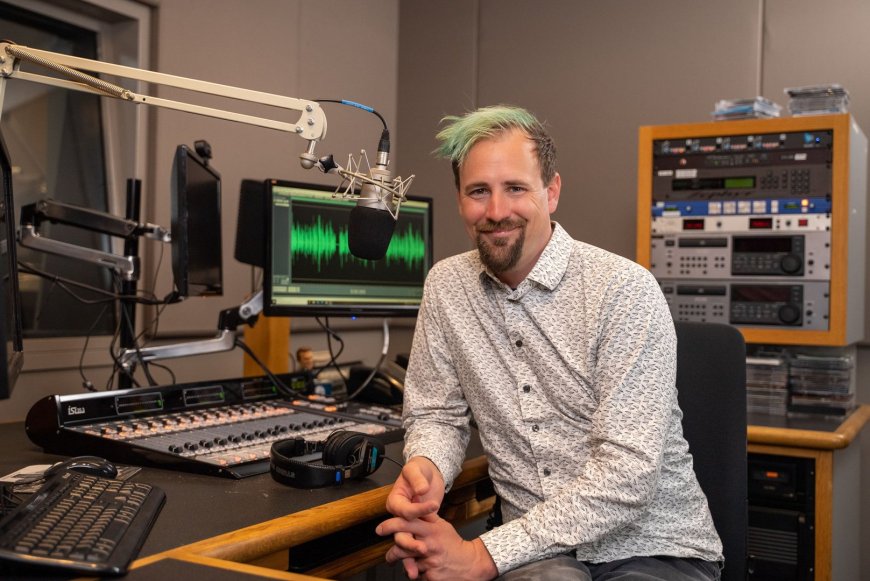
During the U.S. administration’s current ideological and fiscal constraints over arts organizations, it’s difficult to find an orchestra or opera house not affected — at times, to the point of major changes or even giving up.
Just last week, the Corporation for Public Broadcasting (CPB), a significant source of funding for music programming for many years, announced that it plans to shut down by Sept. 30, having lost all federal funding as the Republican majority in Congress approved President Trump’s order to rescind previously appropriated funding.
Other major agencies, such as the National Endowment for the Arts (NEA) and the National Endowment for the Humanities (NEH), are facing similar challenges and a dim future.

As the main provider of federal funding for NPR and PBS, CPB has offered direct forms of support for arts organizations — such as negotiating and funding music rights and royalties on behalf of grantee stations, freeing them from expenses — as well as indirect support with significant local impact. The Great Performances series on PBS, for instance, helped organizations like San Francisco Ballet, SF Opera, and SF Symphony attain nationwide exposure and acclaim.
Of the significant costs involved in these telecasts, local organizations covered only the logistical end, such as crowd control and security. The rest came from the production station WNET, which in turn received funds from the CPB. In a landslide, the disappearance of CPB support to WNET rolls on to diminish or eliminate programs such as Great Performances.
Also directly affected by the federal reordering of priorities is Classical California, the network of sister radio stations KUSC and KDFC. Classical CA is reporting a loss of $1.1 million in funding from CPB.
“The good news for our audience of over 1.6 million people is that you have the power to overcome this loss and its potential impact on our service,” KDFC President Bill Lueth said. “Your support allows us to keep sharing the music that helps listeners find calm, focus, and connection amid the complexities of daily life. It fuels our broadcasts, strengthens our outreach efforts, and expands the digital services that carry classical music to communities across California and beyond.”

San Francisco arts organizations, including music groups like Dance Brigade (Mission Dance Theater) and Gray Area, have been in crisis mode since their NEA funding has been canceled. In the last fiscal year, NEA provided $4.5 million in grants to nonprofits in San Francisco, but as the result of recent changes, most grants — even budgeted — will be rescinded. Other local organizations whose grants have been canceled include the Bay Area Video Coalition, which lost $100,000, and Dance Brigade, which lost $75,000.
Even before these grant cuts, San Francisco's exorbitant rents and high living costs had already created challenging economics for arts organizations. Local theaters, important hosts to arts groups and musicians, have faced such severe problems that San Francisco Chronicle writer Lily Janiak warned that theaters are “in a free fall.” Berkeley’s Aurora Theater suspended productions for the next season citing post-pandemic financial instability. The Fillmore Jazz Festival was initially canceled for 2025 because of a lack of funding, but a last-minute donation put the event back on the calendar.
Financial constraints in the arts in the community are responsible for much more than limiting the amount of entertainment available. San Francisco’s arts and culture sector alone generates $1.45 billion in economic activity and supports close to 40,000 full-time equivalent jobs annually, according to a recent report published by Americans for the Arts; audience members who travel to see monumental events such as SF Opera’s production of Richard Wagner’s Ring Cycle bring millions of dollars to hotels and restaurants; when Symphony and Ballet performances are canceled, restaurants on Hayes Street are left empty.

As the Brookings Institution points out, pressure from the White House impacts organizations beyond fiscal woes: “The Trump administration’s actions could exacerbate a reported ‘chilling effect’ on artistic endeavors and could further incite hatred toward targeted minority communities.”
But the challenge and hardship have also prompted a determined response. For example, the Sewell Family Foundation and Chamber Music America have announced a revision to CMA’s hallmark grant program to provide emergency assistance to organizations and ensembles “whose funding had been revoked due to widespread National Endowment for the Arts grant rescissions.”
Renamed “Classical Commissioning: A Responsive Shift,” the initiative reimagines CMA’s commissioning program to provide critical general operating and programmatic support for the presentation of works by living American composers.
“This is a bold step to sustain creative voices amid the uncertainty surrounding federal arts funding,” pianist and CMA’s CEO Kevin Kwan Loucks said. He noted that since 1983, the Classical Commissioning program has supported more than 285 grantees and facilitated the creation of new contemporary classical works by American composers, including Andy Akiho, Jessie Montgomery, Tyshawn Sorey, Missy Mazzoli, Joan Tower, Steve Reich, and Huang Ruo.
“While the revised program will keep new music at its core, needs have shifted. The NEA rescissions exacerbate an already unsteady financial situation for many organizations still reeling post-pandemic,” Loucks said.

